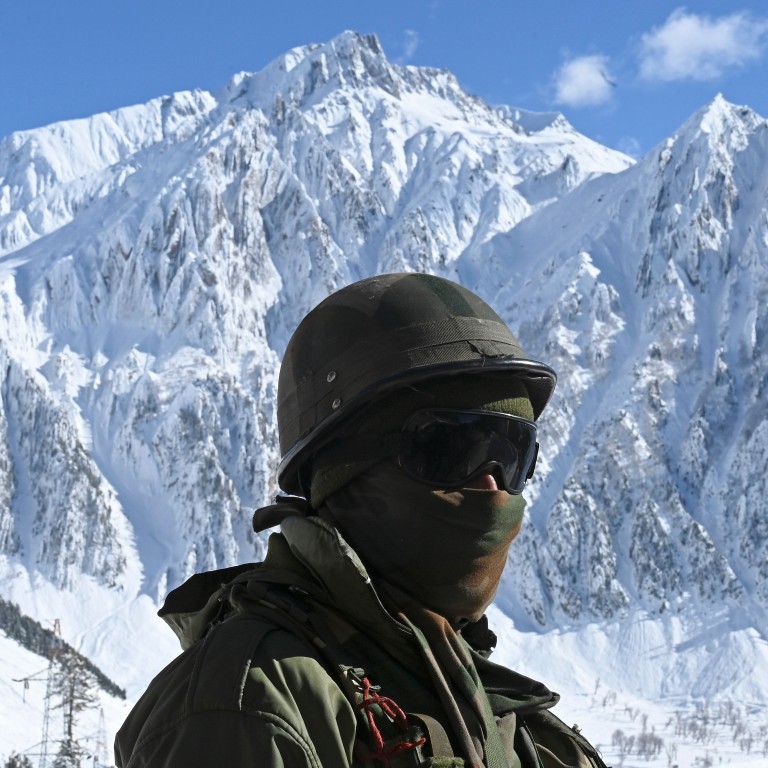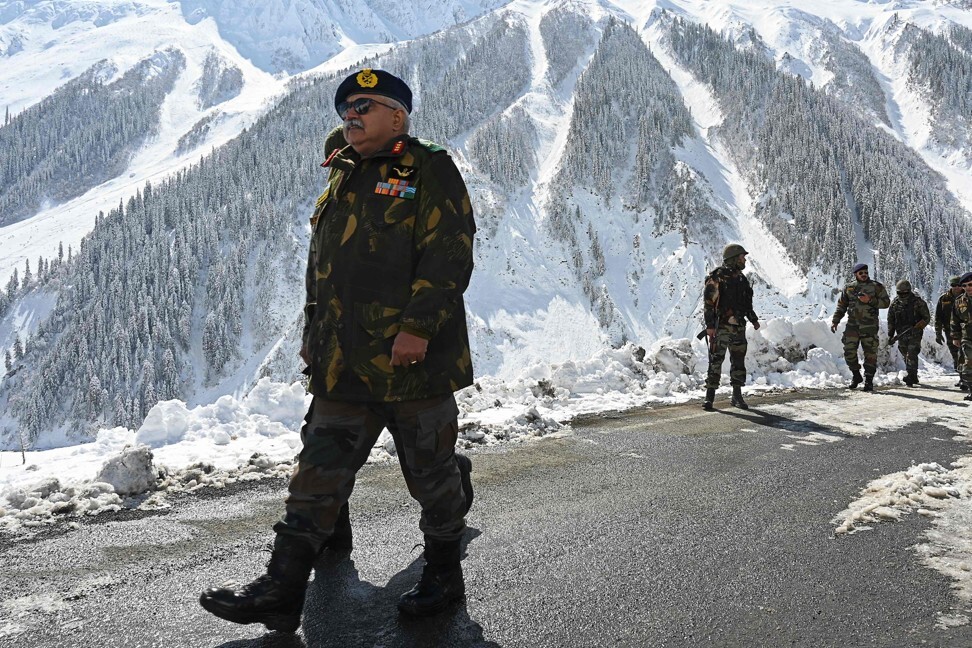
India-China border row, Covid-19 vaccine diplomacy fuelling New Delhi’s new embrace of the Quad, say analysts
- China’s rising assertiveness, Covid-19 and the Myanmar coup are expected to be on the agenda at Friday’s Quad meeting
- Analysts say while the border clash and vaccine diplomacy have shifted New Delhi’s views on the Quad
A senior US administration official had earlier told Reuters that the meeting would see several financing agreements between the Quad parties to support an increase in manufacturing capacity for coronavirus vaccines in India, with some of the doses going to Southeast Asian countries.
According to a Nikkei report, the four members will work together to secure rare earth metals that are essential to the production of electric car motors and other products. China is the top producer of rare earths.
What is the Quad, and how will it impact US-China relations under Biden?
“India’s hesitations about the Quad have certainly diminished after China’s aggression in Ladakh,” said former Indian foreign secretary Kanwal Sibal.

06:15
Who has the upper hand in the India-China border dispute?
Admiral Philip Davidson, commander of the United States’ Indo-Pacific command, this week said during a congressional hearing that New Delhi had long maintained “strategic autonomy”, but activities along the 3,488km undemarcated Line of Actual Control (LAC) had “opened their eyes” to what cooperation with others might mean for India’s “defensive needs”.
“We have provided some information to India in that crisis – cold-weather closing, clothing, some other equipment … and over the last several years, we have been deepening our maritime cooperation,” Davidson said.
The idea of a quadrilateral dialogue came after the four countries came together for human assistance and disaster relief during the 2004 tsunami in the Indian Ocean. While a diplomatic dialogue and joint naval exercises were held in 2007, no further meetings took place until 2017-2018. In 2020, Japan hosted a meeting of the foreign ministers of the Quad group in Tokyo.
According to a July 2017 article by Tanvi Madan, director of the Indian Project at Washington’s Brookings Institution, although India was seen as the “most prominent holdout”, Australia, Japan and the US had been just as reluctant to push for the Quad in the face of strong Chinese objections and their own ties with Beijing.
“There is a sense that while Beijing has expected reassurance and wants others to respect its sensitivities and aspirations, it hasn’t returned the favour,” she wrote. “And economic ties with China that some expected would alleviate friction have actually added to it.”
China-Australian relations have plumbed new depths since Australia called for an independent inquiry into the origins of the coronavirus pandemic.
Ahead of the meeting on Friday, Australian Prime Minister Scott Morrison said the summit would become an anchor of stability in the Indo-Pacific region.
“This is about four nations that have had a long-term interest in the Indo-Pacific,” he said. “This is about ensuring that we can trade more easily and peacefully; that there is freedom of movement within the seas and the overflight of the area to ensure that there is facilitation, trade and movement across our great region and before these four nations; liberal democracies; standing up for our values; coming together and ensuring that we are an anchor for peace and stability in the Indo-Pacific,” he said.
Is China behind mystery Kashmir ceasefire between India and Pakistan?
Srinath Raghavan, professor of history and international relations at the Ashoka University near Delhi, said India’s involvement in the Quad did not mean a loss of its strategic autonomy.
“The US is an important driver of the Quad, but all the other countries have their own reasons to come together. India’s participation will be shaped by its capabilities and interests,” he said.
New Delhi’s main challenges were on the land borders with China, relations within the South Asian neighbourhood and the Indian Ocean Region, Raghavan said. “The Quad can help in the Indian Ocean Region and more generally to convince China to proceed cautiously.”
Sibal, the retired foreign secretary, said the Quad summit would “produce a closer understanding on the Quad agenda, without it meaning that the positions of each country will be identical”.
“The US is pushing hard to give the Quad a more open security dimension, whereas countries like India prefer it to have a broader agenda covering human assistance and disaster relief, terrorism, climate change and health issues,” he said.
Sibal added that India would not use the Quad to espouse any open anti-China sentiment. But there could be more elaborate defence exercises, including in the South China Sea, and increased security cooperation and more intelligence exchanges among the members.
“But there has to be more emphasis on other forms of cooperation to give more ballast to the group rather than only security,” he said.
Tibetan mind games: India’s edge in border dispute with China?
While the first summit was a significant event that sent a “very powerful” message to China, Sibal said New Delhi’s intention was to deter Beijing, rather than to take an offensive against it.
Despite the strained ties, India and China cooperate on a number of platforms, including at the Russia-India-China dialogue forum. India is also part of BRICS – a grouping of Brazil, Russia, India, China and South Africa – and will host a summit later this year.
“Each country in the Quad has a major relationship with China which will be preserved but conditioned on China’s future conduct,” Sibal said. “It is a signal to China that its aggressive policies will be resisted.”
Additional reporting by AP, Reuters



